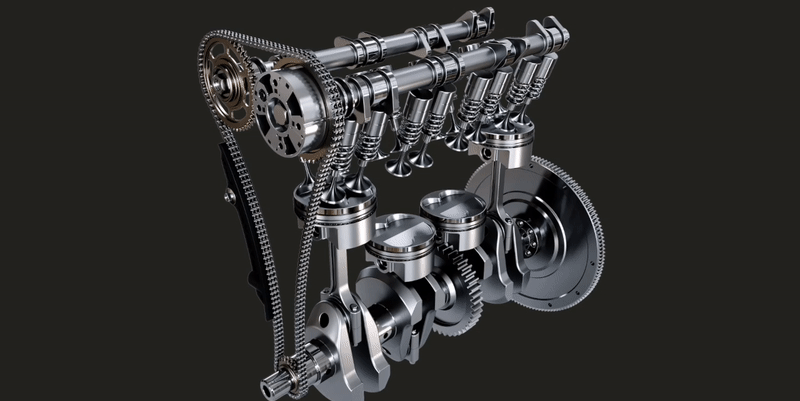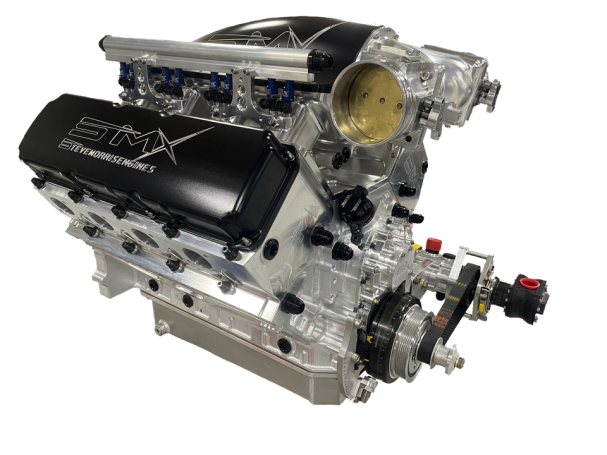Premier Distributors: Engines For Africa Supplies Dependable Power
Premier Distributors: Engines For Africa Supplies Dependable Power
Blog Article
Explore a Wide Variety of Engines for each Vehicle and Objective
The automobile landscape is significantly complex, with a diverse variety of engine kinds designed to satisfy particular performance and performance demands throughout numerous vehicle categories. Furthermore, heavy-duty engines serve the demands of job lorries, while environmentally friendly options are gaining grip in the search of sustainable transport.
Types of Automotive Engines
Automotive engines can be categorized into several unique types, each made to fulfill details performance and effectiveness needs. The most common groups consist of internal burning engines, electric engines, and hybrid systems.

Electric engines, on the other hand, operate on electrical power kept in batteries, supplying immediate torque and absolutely no exhausts. These engines are coming to be increasingly preferred because of developments in battery innovation and the expanding focus on sustainability.
Crossbreed systems incorporate both interior combustion and electrical engines, enabling automobiles to maximize fuel performance and minimize discharges by flawlessly switching in between source of power. Each engine type provides its drawbacks and advantages, influencing variables such as lorry style, planned use, and market demand. Understanding these distinctions is vital for customers and producers alike when selecting the suitable engine for their specific demands.
Performance Engines for Sports Cars
Efficiency engines for cars are particularly crafted to provide enhanced dexterity, power, and rate, setting them besides typical automotive engines. These engines often use advanced innovations such as turbocharging, supercharging, and variable valve timing to maximize efficiency and responsiveness.
Usually, efficiency engines are designed with higher compression ratios, which enable for better energy removal from fuel. This leads to remarkable horsepower and torque figures, allowing fast velocity and greater top rates. In addition, the light-weight materials made use of in these engines, such as light weight aluminum and carbon fiber, add to minimized total lorry weight, boosting handling and ability to move.
Engine configurations like V6, V8, and even hybrid systems prevail in efficiency cars, each offering special advantages in regards to power shipment and driving dynamics. The adjusting of these engines is likewise critical; several manufacturers maximize the engine management systems to offer an exhilarating driving experience, frequently consisting of sporting activity settings that readjust throttle reaction and equipment changes.
Effective Engines for Daily Commuters
In the world of day-to-day commuting, efficient engines play an essential role in maximizing fuel economic climate and reducing emissions while offering reputable performance. As city populaces expand and environmental issues increase, the need for cars furnished with reliable powertrains has surged.
Modern engines made for daily commuters often incorporate modern technologies such as turbocharging, straight fuel shot, and crossbreed systems. Turbocharging improves engine efficiency by compeling even more air into the combustion chamber, enabling smaller sized, lighter engines that do not jeopardize power result. Straight gas injection boosts gas atomization, bring about better burning and increased effectiveness.
Crossbreed engines, integrating internal combustion with electrical power, additional increase fuel economic situation, especially in stop-and-go traffic, where traditional engines can experience inefficiencies. Electric motors assist during acceleration and can operate individually at low speeds, lowering overall gas consumption.
Additionally, developments in engine monitoring systems and lightweight products add considerably to effective engine layout. By concentrating on efficiency, longevity, and ecological sustainability, suppliers remain to deliver engines that not just meet the needs of day-to-day commuting but likewise align with international efforts to reduce carbon footprints.
Heavy-Duty Engines for Work Vehicles
Durable engines for job lorries are routinely engineered to provide phenomenal torque and dependability under demanding problems. These engines are designed to execute in environments where standard engines might fail, such as building websites, logging procedures, and farming setups. The primary emphasis of heavy-duty engines is their capability to produce high degrees of power while preserving resilience over prolonged durations of procedure.
Usually, sturdy engines make use of innovative materials and durable construction strategies to endure the rigors of heavy workloads. Attributes such as strengthened cylinder blocks, boosted air conditioning systems, and progressed gas injection modern technologies add to their effectiveness. These engines often operate at reduced RPMs, which aids to enhance gas effectiveness while providing the required power for lugging and carrying.
In enhancement to mechanical effectiveness, sturdy engines are usually outfitted with advanced electronic control units (ECUs) that manage efficiency, emissions, and diagnostics. This combination enables much better monitoring and maintenance, guaranteeing that job lorries stay functional and effective.
Inevitably, sturdy engines are a crucial part in the efficiency of numerous sectors, offering the essential power and integrity to tackle the toughest of tasks.
Eco-Friendly Engine Options
The growing focus on sustainability has led to the growth of green engine choices that prioritize decreased read review emissions and enhanced fuel efficiency. These engines are designed to decrease the environmental effect of automobiles while still providing the efficiency and integrity anticipated by consumers.
Among the most notable eco-friendly options are hybrid and electrical engines. Crossbreed engines integrate typical internal combustion engines with electric propulsion, enabling decreased gas consumption and reduced greenhouse gas emissions. Electric engines, on the other hand, operate totally on battery power, generating zero tailpipe discharges and contributing to cleaner air quality.
Another promising growth is the Go Here development of biofuel engines, which use renewable sources, such as plant materials, to power automobiles (Engines For Africa). By utilizing biofuels, these engines can decrease reliance on nonrenewable fuel sources and lower general carbon footprints

As the vehicle sector develops, eco-friendly engine choices will certainly play an essential duty in driving the transition in the direction of more lasting transport options.
Conclusion
The automobile sector supplies a diverse selection of engines designed to meet numerous car requirements and functions. From high-performance engines that improve cars capabilities to effective models focusing on fuel economic climate for daily commuters, each kind offers a specific function. Heavy-duty engines satisfy durable job cars, while environmentally friendly choices, such as electrical and biofuel engines, advertise lasting transport. visit homepage This extensive variety guarantees that all driving requirements are resolved, contributing to improvements in vehicle innovation and ecological stewardship.

Report this page